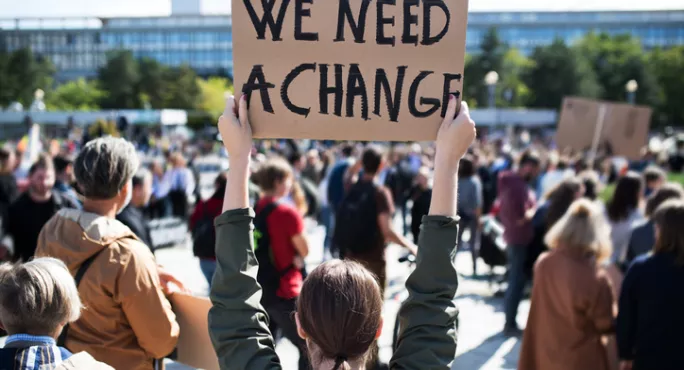Pupils ‘should learn about climate change at primary’

Three in four people in the UK believe children should learn about climate change in primary school or earlier, a survey suggests.
More than two in five (41 per cent) do not feel the current education system in the UK is teaching about environmental issues well, according to research by educational publishing group Pearson.
COP26: How can pupils and teachers get involved?
Climate change: Five things schools can do to tackle climate change
Related: How our school will bring COP26 to students worldwide
Some 78 per cent of respondents said that climate and environment topics were not adequately discussed or taught when they were in school.
More than half (52 per cent) believe children should start learning about climate change at primary school, while 23 per cent said this should start in preschool, according to the poll of 1,000 16- to 70-year-olds.
Call for earlier teaching about climate change and sustainability
The findings come after young campaigners called for climate change education to be covered across the whole curriculum.
Earlier this month, education secretary Nadhim Zahawi set out a series of measures to put climate change at the heart of education.
It is already taught in science and geography lessons in England as part of the curriculum in both primary and secondary schools.
But the government’s draft sustainability and climate change strategy says teachers will be given access to the “best training and support” in these subjects to ensure that young people understand the importance of sustainability.
It adds that it will develop a “model” science curriculum in primary schools, with a focus on nature and the recognition of species, by 2022 to ensure that all children understand the world around them.
The survey by Pearson, carried out in October and November, suggests that 59 per cent of people are currently trying to educate themselves more about climate issues.
Just over a third (36 per cent) of Britons are very or somewhat likely to look for employment in a field that would have a direct impact on the environment.
Pearson commissioned a global survey of 5,000 people in the United States, Brazil, China, India, Mexico and the UK, with 1,000 respondents per nation.
Some 88 per cent of respondents globally feel there is a more urgent need to educate people about climate issues than when they were in school, and 88 per cent believe schools have a responsibility to teach students about climate and environmental issues.
Erika Webb-Hughes, Pearson’s vice-president for sustainability, said: “When you know better, you do better. Globally, the majority of people are educating themselves to gain a deeper understanding of climate change and the positive impact they can have through their own actions and careers.
“Their hunger to learn (what perhaps wasn’t covered so extensively in formal education a number of generations ago) about the environment is fuelling green jobs and practices that can be incorporated into any role or industry, as well as personal actions that we can all take that will ensure a sustainable future for our world.”
James Bowen, director of policy for school leaders’ union the NAHT, said: “There is a huge amount of good work already taking place in schools.
“Many primary schools are already actively teaching pupils about the importance of conserving and protecting our planet. We know this generation of pupils are passionate about bringing about meaningful change.”
Graham Frost, NAHT national executive member and headteacher of Robert Ferguson Primary School in Carlisle, who proposed a motion encouraging teaching about the climate crisis at the NAHT’s annual conference in 2019, said: “Education is almost universally considered the means by which we build for a better future, so we simply have to equip children with the knowledge they need to challenge politicians and business leaders to act urgently on climate change.
“School leaders cannot ignore the growing pupil voice on climate change, and children cannot articulately challenge the powers-that-be without being educated.
“Equipped with scientific knowledge, our pupils can see that system-wide technological, political, sociological and economic changes at a local and global level are urgently and desperately needed.”
You need a Tes subscription to read this article
Subscribe now to read this article and get other subscriber-only content:
- Unlimited access to all Tes magazine content
- Exclusive subscriber-only stories
- Award-winning email newsletters
Already a subscriber? Log in
You need a subscription to read this article
Subscribe now to read this article and get other subscriber-only content, including:
- Unlimited access to all Tes magazine content
- Exclusive subscriber-only stories
- Award-winning email newsletters



